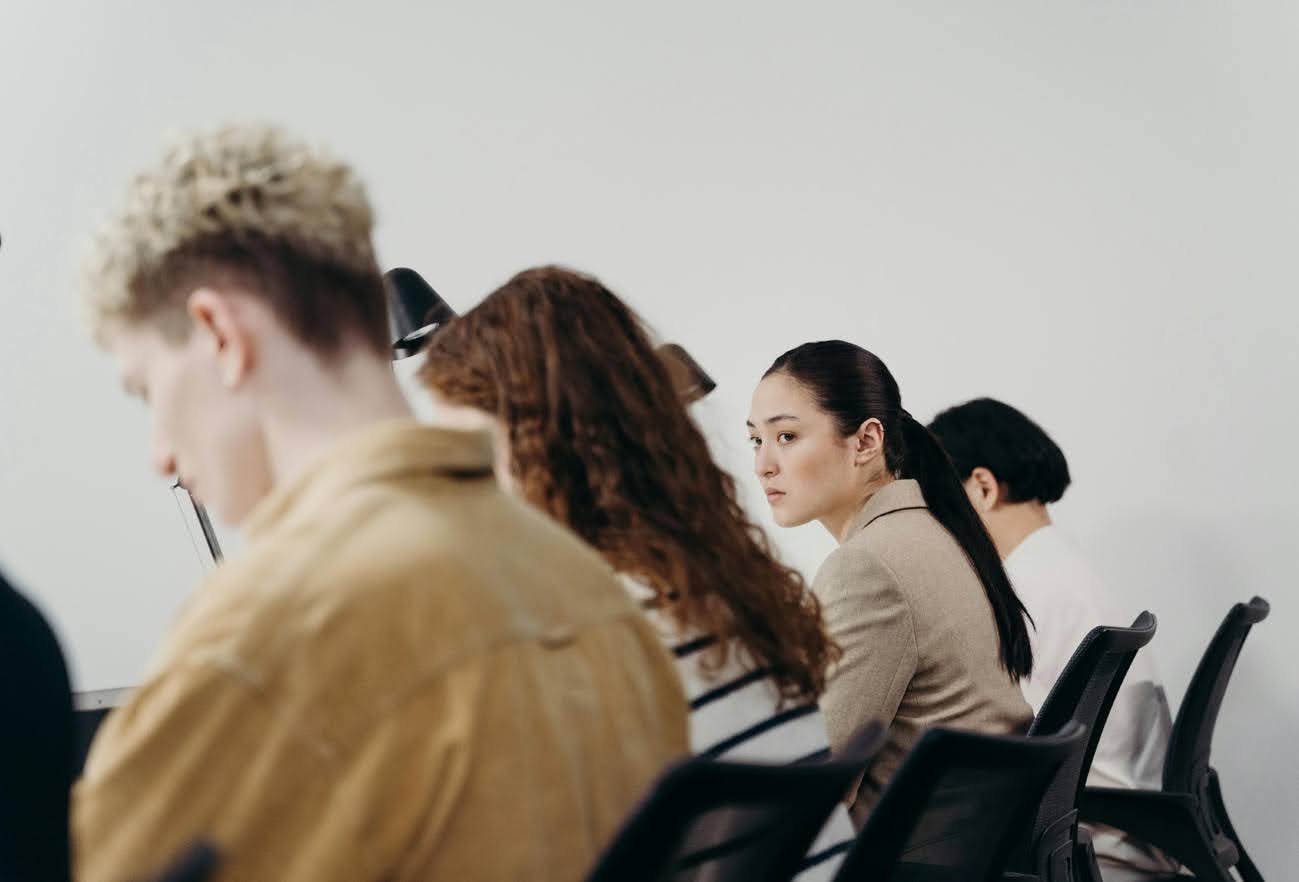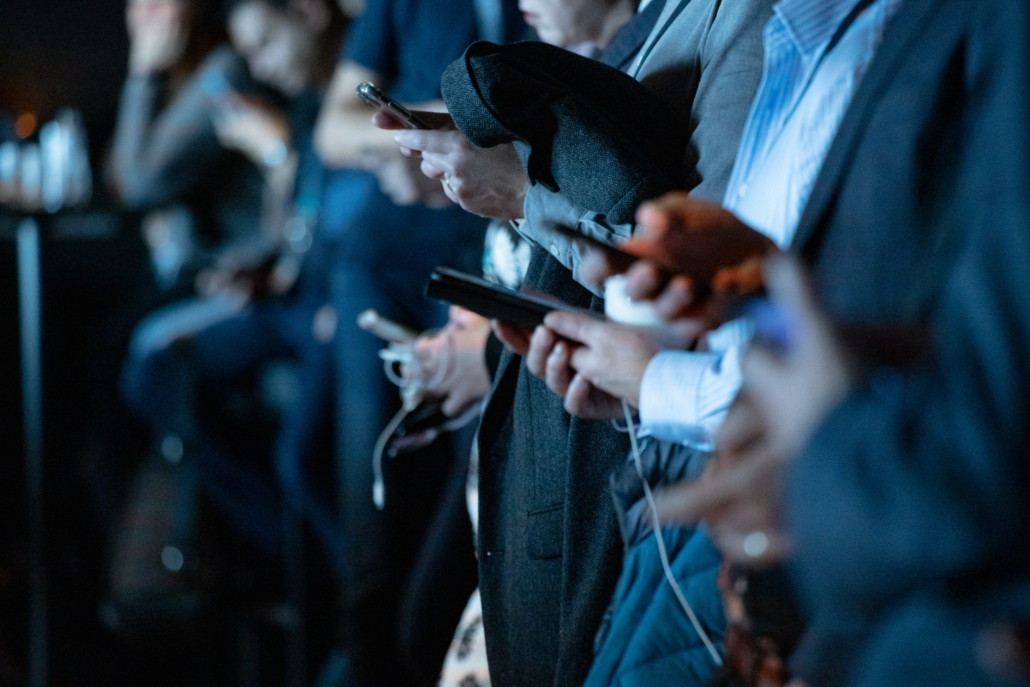Individuals and Groups
Content tailored to purpose-driven individuals and groups building collective understanding and impactful sensemaking
Why Social Networks are failing Cultural Creatives
This article critiques traditional social media platforms for prioritizing superficial engagement over meaningful discourse, particularly frustrating "Cultural Creatives"—individuals focused on addressing complex global challenges like climate change and social justice. The piece argues that current platforms create echo chambers, reward sensationalism over constructive debate, and reduce complex problems to oversimplified soundbites through their "one-to-many" model and algorithm-driven feeds. It identifies growing demand for "prosocial media" alternatives that emphasize collective sensemaking, systems thinking, and context-rich discussions rather than individual popularity metrics. The article contrasts traditional social networks' focus on likes, shares, and brief comments with the need for platforms that support in-depth analysis, multidimensional understanding, and collaborative knowledge-building to tackle "wicked problems" requiring nuanced, interconnected thinking.
Harnessing collective minds for better career choices
This article examines career transition challenges through the lens of Danish philosopher Søren Kierkegaard's concepts of being "lost in the finite" (trapped by familiar roles and external expectations) versus "lost in the infinite" (overwhelmed by too many possibilities). The piece describes how people often define themselves by their resumes and past experiences, creating self-limiting career paths, while simultaneously experiencing anxiety when contemplating change due to the "dizziness of freedom" that comes with multiple options. Drawing on psychologist Rollo May's work, the article suggests that anxiety can serve as a catalyst for personal growth and creative innovation when properly harnessed. The piece identifies problems with traditional career advice sources like social media and Google searches, which provide fragmented and biased information, and frames career decision-making as requiring collective intelligence and multidimensional understanding of experiences from diverse individuals who have navigated similar transitions.
SparkMap: a unique tool for multidimensional thinking
This article describes SparkMaps as Hunome's visual tool for representing collective understanding and diverse viewpoints on specific themes or subjects. The platform aims to help groups see the breadth of their collective knowledge, reach shared understanding, and make better decisions based on that understanding. SparkMaps begin with an initial thought or idea that expands through collaborative contributions, covering themes like cultural adjustment, curiosity, AI limitations, future of work, misinformation, demographic shifts, universal basic income, and EU energy policy. The article outlines methods for using online meetings to build SparkMaps collectively, including starting with personal stories, reflecting on contributions, identifying knowledge gaps, and scheduling follow-up sessions for continued development. It mentions positive feedback from organizations like Systems Change Finland and Friends of Curiosity regarding the tool's effectiveness for discovering new connections and insights.
Aha moments - the link between curiosity and serendipity
This article explores research from the University of Pennsylvania and American University that identifies two types of curiosity: "hunters" who connect closely related topics in tight clusters to fill knowledge gaps, and "busybodies" who jump between diverse topics creating loose knowledge networks. The research used Wikipedia browsing patterns as a novel measurement approach. The piece argues that curiosity involves both consumption (gathering information) and curation (shaping and retaining it), with both aspects contributing to wellbeing through "aha moments" when understanding crystallizes. However, the author suggests that losing curated information—through forgotten notes, lost tweets, or failed memory—can create frustration that negatively impacts wellbeing. The article proposes that understanding these curiosity patterns can inform the design of tools that better support information discovery and retention, claiming this could enhance emotional satisfaction and overall wellbeing.
Good thinking counts on Hunome
This article critiques traditional social media platforms for promoting fragmentation, polarization, and individualistic "one-to-many" communication structures that the author argues diminish meaningful collective action. The piece contrasts fleeting social media messages with building lasting understanding, describing personal frustrations with Twitter's ephemeral nature and difficulty facilitating coherent group discussions. The author advocates for moving beyond the follower-based model toward what they term "atomic communities" that form around shared interests and thinking rather than personal branding. The article criticizes social media's advertising-based revenue model as creating inherent bias, comparing it to Google founders' 1998 warning about advertising-funded search engines. It contrasts traditional search results with what the author calls "boutique search for understanding" that provides insights and thought connections rather than isolated information fragments, arguing that current platforms waste users' efforts on temporary content rather than building lasting knowledge.
4 steps to generate change and its impact
This article presents a four-step framework for understanding and managing change, whether self-initiated or externally imposed. The piece acknowledges that change can have both positive effects (improved motivation, creativity) and negative impacts (stress, anxiety) on wellbeing. The four steps include: understanding your current situation by mapping out the status quo, catalysts, and stakeholders; identifying the end goal and variables that could impact progress; designing a path from current position to desired outcome while considering knock-on effects and consulting stakeholders; and implementing the change while monitoring other system components for unintended consequences. The article emphasizes the importance of understanding change as part of a larger system with interconnected components, suggesting that this systems thinking approach enables better assessment of impact and adjustment of strategies for optimal outcomes.
What is a humanity explorer? This is their DNA
This article defines "humanity explorers" as individuals from diverse backgrounds who share a curiosity about human behavior and societal systems. The piece describes three key characteristics: they come from various professional and personal contexts (designers, marketers, strategists, or simply curious individuals), with estimates citing 1 billion knowledge workers and up to 50% of adults in high-income societies as "cultural creatives"; they possess empathy and insight, leading to broader worldviews and creative problem-solving abilities; and they reject simplistic black-and-white thinking, instead seeking nuance and multiple perspectives to build comprehensive understanding. The article claims these individuals tend to make more sustainable decisions by considering various viewpoints and seeing themselves as part of larger systems rather than focusing solely on individual concerns. The piece positions humanity explorers as naturally inclined toward collective thinking and human-aware decision-making approaches.
Diverse perspectives build multidimensional understanding
This article presents Hunome's approach to building multidimensional understanding of human-related themes through collective perspectives. The piece argues that everyone is qualified to contribute to understanding humanity since all people have lived human experiences, whether simple daily activities or complex expertise in fields like anthropology or social psychology. Using recreational space use as an example, it describes how different stakeholders (designers, town planners, community fitness group members) can contribute varied perspectives that collectively build comprehensive understanding of topics. The article outlines three levels of understanding: individual (connecting personal thoughts with broader perspectives), shared (developing collective insights about human experiences), and impact-oriented (using multidimensional understanding to make more human-aware decisions in personal choices and product/service design). The piece positions this collective sensemaking approach as a way to improve perceptions and decision-making by making comprehensive human understanding accessible to everyone.
Information disparity: Is the world growing further apart?
This article examines how polarization and information disparity have created a "black or white world" lacking nuance in public discourse, using examples like the US presidential race and Black Lives Matter movement. The piece attributes this polarization partly to social media advertising models that create echo chambers by showing users content similar to what they've previously engaged with, designed to benefit advertisers rather than promote diverse thinking. The author argues that this segmentation hinders problem-solving for complex "wicked problems" like educational access inequality, which require systems thinking and multiple perspectives to address effectively. The article also identifies information silos as a barrier, noting that comprehensive understanding requires time and resources to gather fragmented information from various sources, creating disparities between those who can access broad perspectives and those who cannot. The piece advocates for embracing diverse viewpoints and bringing people together around complex issues rather than treating differences as divisive badges.
Human skills wanted: humanness in an age of technology
This article discusses workforce adaptation needs in response to the Fourth Industrial Revolution and COVID-19 pandemic, referencing a World Economic Forum report stating that 50% of employees will need reskilling by 2025. The piece notes that while critical thinking and problem-solving remain top priorities, the pandemic has elevated distinctly human skills like active learning, resilience, stress tolerance, and flexibility. The author argues these human capabilities are irreplaceable by machines, particularly the ability to adapt perspectives and grow from traumatic experiences. The article suggests that understanding different perspectives enhances flexibility and resilience, and proposes that human active learning—which considers nuance and context that machines cannot account for—can be augmented with AI rather than replaced by it. Using an HR practitioner example, the piece illustrates how combining human insights with AI analysis could improve decision-making processes in a post-pandemic workforce environment.
The negative impact of social media on society
This article critiques major social media platforms following high-profile incidents like the Trump bans and WhatsApp privacy policy changes, arguing that these events revealed public unease about platforms' societal influence. The piece attributes social problems to the advertising-driven business model that creates detailed user profiles for targeted marketing, which the author claims has produced "deep polarization" as an unintended consequence. The article describes how algorithms serve advertisers rather than users, contributing to a "you're either with us or against us" mentality that the author argues has eroded discourse, empathy, and understanding. The piece suggests that society has reached a "crunch moment" requiring platforms that prioritize collective understanding over individual pontification, claiming this shift would actually benefit businesses seeking to understand customers as human beings rather than just demographic data points. It frames this as an opportunity to redirect society away from division toward comprehensive understanding.
Hunome is set to revolutionize our understanding of humanity
This article announces the launch of Hunome as a collective insights platform designed to help humanity understand itself through connected member perspectives on human-related themes. CEO and Founder Dominique Jaurola explains that the platform addresses the challenge of gathering scattered, siloed information about human behavior and experiences, which often leads to incomplete or simplistic understanding. The platform allows members to explore different perspectives on various themes while contributing their own viewpoints and connecting with others' insights. Jaurola describes Hunome's goal as creating comprehensive understanding of human nature—past, present, and future—through what the platform calls collective sensemaking, positioning it as a tool for complex problem-solving and decision-making that improves as more perspectives are added to the community.












